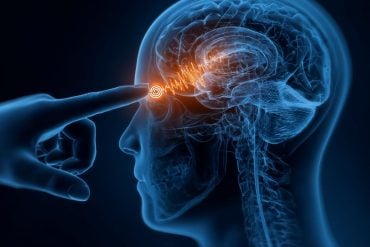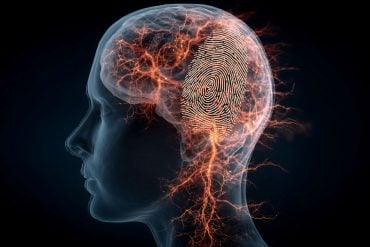Summary: Nicotine exposure significantly altered the metabolism and secretion of serotonin, acetylcholine, kynurenic acid, and choline in HT22 hippocampal cells. Findings suggest nicotine could have neuroprotective properties and provide cognitive enhancement.
Source: Chinese Academy of Sciences
Nicotine ingested from smoking exerts neuroprotection and developmental neurotoxicity in the central nervous system. It can produce changes of cognitive behaviors through regulating the release of different neurotransmitters in the brain.
However, the effects of nicotine exposure or withdrawal on neurotransmitter metabolism of hippocampal neurons still remain unclear.
Dr. Luo Qian’s group from the Shenzhen Institute of Advanced Technology (SIAT) of the Chinese Academy of Sciences has revealed the possible mechanism of nicotine on hippocampal-dependent cognition.
Their study was published in Chinese Chemical Letters on Sept. 24.
Through a microfluidic chip coupled with liquid chromatography-mass spectrometry (MC-LC-MS) system, the researchers used mice in real-time to evaluate the dynamic alterations induced by nicotine exposure and withdrawal at relevant exposure levels of smoking and secondhand smoke in the neurotransmitter metabolism of hippocampal neuron (HT22) cells.

The MC-LC-MS system showed an advantage in detecting unstable metabolites over the conventional method of using in vitro model. “We found that HT22 cells mainly released related neurotransmitters of tryptophan and choline metabolism,” said Dr. Luo.
Moreover, exposure to nicotine at relevant levels of smoking and secondhand smoke significantly altered the metabolism and secretion of serotonin, kynurenic acid, choline and acetylcholine of HT22 cells, and their alterations were closely associated with the exposure dose and duration.
These results suggested the acute exposure to nicotine was beneficial to protect the neurons, especially cognitive enhancement, and the elevated picolinic acid continually protected neuronal cognitive function after nicotine withdrawal.
Furthermore, the dynamic alterations of neurotransmitter metabolism induced by nicotine might be a possible protective mechanism of nicotine on hippocampal dependent cognition.
About this neuroscience research news
Author: Press Office
Source: Chinese Academy of Sciences
Contact: Press Office – Chinese Academy of Sciences
Image: The image is in the public domain
Original Research: Closed access.
“Real-time effects of nicotine exposure and withdrawal on neurotransmitter metabolism of hippocampal neuronal cells by microfluidic chip-coupled LC-MS” by Zhiyu Chen et al. Chinese Chemical Letters
Abstract
Real-time effects of nicotine exposure and withdrawal on neurotransmitter metabolism of hippocampal neuronal cells by microfluidic chip-coupled LC-MS
Nicotine ingested from smoking exerts neuroprotection and developmental neurotoxicity in central nervous system. It can produce several changes of cognitive behaviors through regulating the release of different neurotransmitters in the brain. However, the effects of nicotine exposure or withdrawal on neurotransmitter metabolism of hippocampus are still unclear.
In this study, we real-time evaluated the dynamic alterations in neurotransmitter metabolism of hippocampal neuronal (HT22) cells induced by nicotine exposure and withdrawal at relevant exposure levels of smoking and secondhand smoke by using a microfluidic chip-coupled with liquid chromatography-mass spectrometry (MC-LC-MS) system.
We found HT22 cells mainly released related neurotransmitters of tryptophan and choline metabolism, both nicotine exposure and withdraw altered its neurotransmitters and their metabolites release.
Exposure to nicotine mainly altered the secretion of serotonin, kynurenic acid, choline and acetylcholine of HT22 cells to improve hippocampal dependent cognition, and the change are closely related to the dose and duration of exposure. Moreover, the altered metabolites could rapidly recover after nicotine withdrawal, but picolinic acid was elevated.
MC-LC-MS system used in present study showed a greater advantage to detect unstable metabolites than conventional method by using in vitro model, and the results of dynamic alterations of neurotransmitter metabolism induced by nicotine might provide a potential targets for drug development of neuroprotection or cognitive improvement.







